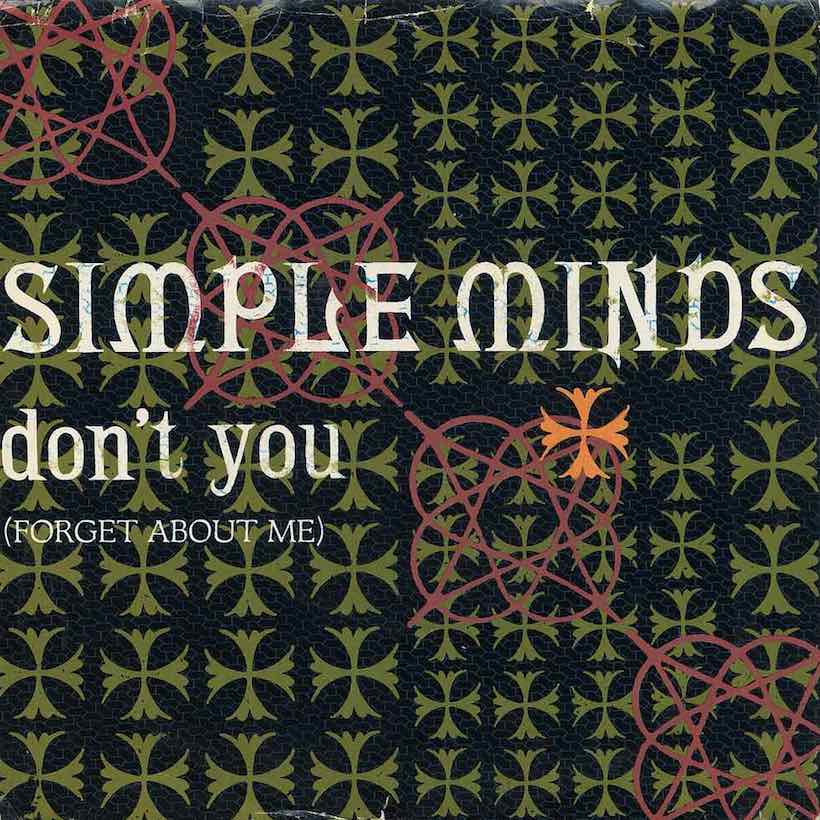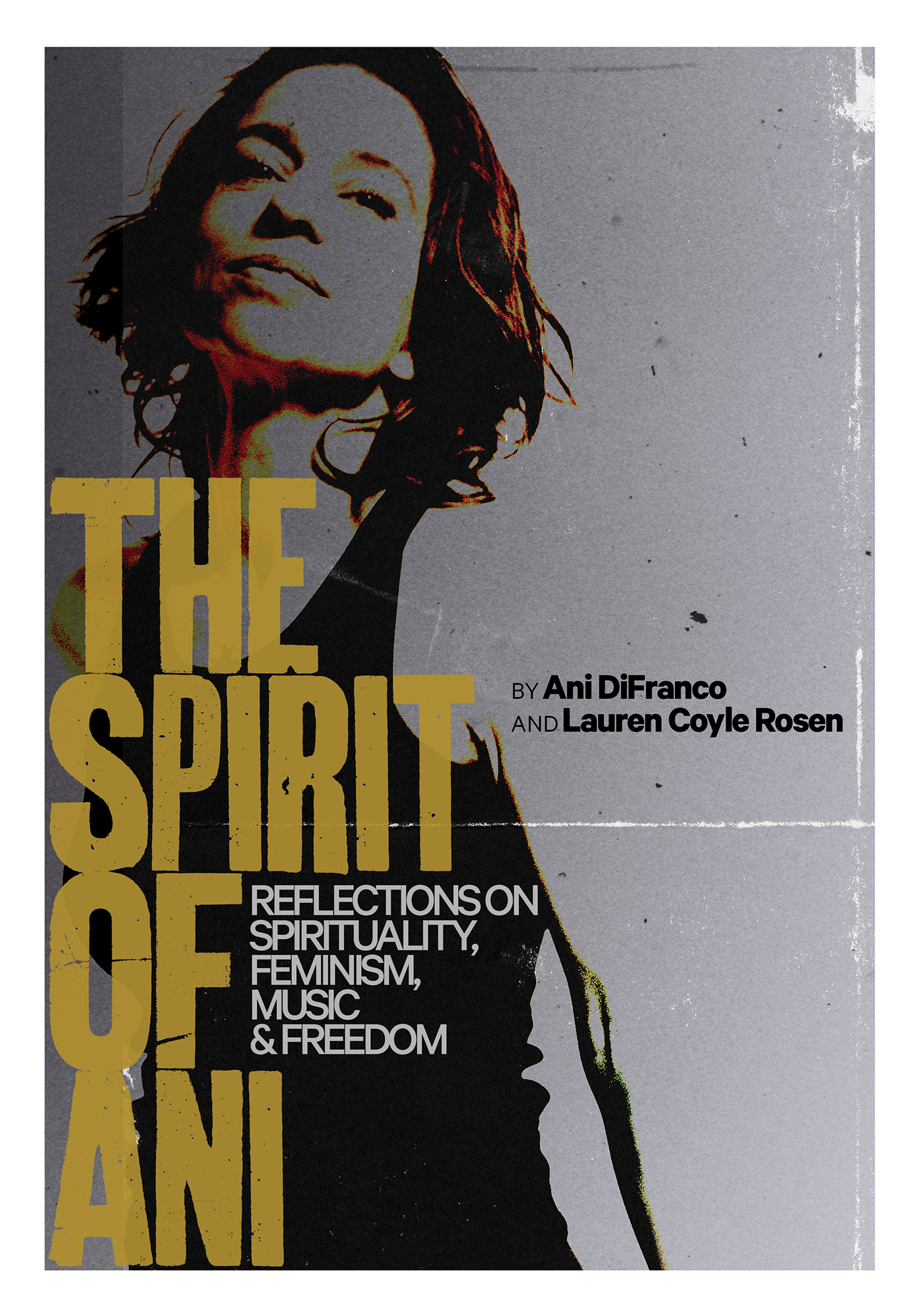In The Number Ones, I'm reviewing every single #1 single in the history of the Billboard Hot 100, starting with the chart's beginning, in 1958, and working my way up into the present.
Simple Minds - "Don't You (Forget About Me)"
HIT #1: May 18, 1985
STAYED AT #1: 1 week
This morning, some of us, for mysterious reasons, might be compelled to punch the air. So here's the story of a culturally significant air-punch.
There's a big hole right in the middle of Judd Nelson's fingerless leather-and-mesh glove. Molly Ringwald still puts her diamond earring into his hand, then closes his fist over it. They kiss, and Nelson leans in harder for more, but Ringwald pulls away. Ringwald climbs into a waiting car and presumably has an uncomfortable off-camera conversation with whichever parent just picked her up. Nelson, looking slightly stunned, watches her go. Then he puts on her earring.
Over the soundtrack, the five kids who have just spent their Saturday in detention together read the joint statement that they've written for their petty-dictator principal. They tell him they've just figured out that they don't fit his definitions for them, or their own definitions for each other.
There's nobody to pick up Judd Nelson. Instead, he stalks off over an empty football field, his head still spinning. He punches the air, and the movie ends right there, in freeze-frame -- Judd Nelson's fist silhouetted against the golden-hour light. It's a rare moment of victory for a character who probably won't get too many of those. But under the narration, under everything, we can hear doubt already setting in. That doubt takes the form of Jim Kerr's breathless baritone.
Those last few minutes of John Hughes' The Breakfast Club are gloriously satisfying. At the same time, though, we don't know whether these five kids are still going to be friends on Monday morning. The kids don't know, either. They talk about it. Simple Minds frontman Jim Kerr talks about it, too: "Slow chains may pull us apart/ When our life gets into your heart, baby." The song is a funny thing -- a melancholy triumph, an anthem that also works as a hanging question mark.
The song was a hanging question mark, too. Keith Forsey, the guy who did the music for The Breakfast Club, had co-written "Don't You (Forget About Me)" with Kerr's voice in mind. But Kerr's band Simple Minds weren't into the idea of recording someone else's song. Kerr also thought Forsey's lyrics were stupid. Forsey was left with this song and with nobody to sing it.
It's pretty surprising that anyone was turning down Forsey at this point. Like a lot of '80s hitmakers, Forsey was a former progger, a drummer who'd played with bands like Panik Orchester and Amon Düül II. After playing for disco artists like Claudja Barry and Boney M, Forsey had landed a gig as Donna Summer's drummer. From there, Forsey had co-written Summer's 1979 chart-topper "Hot Stuff." In the years that followed, Forsey kept working with Summer's producer Giorgio Moroder, and he became a producer himself, working on records like Billy Idol's self-titled 1982 solo debut.
In in 1983, Forsey co-wrote Irene Cara's #1 single "Flashdance... What A Feeling" with Cara and Moroder. That opened up a new movie-music lane for Forsey, and he co-wrote songs for films like Ghostbusters and Beverly Hills Cop -- including "The Heat Is On," the Glenn Frey song from Beverly Hills Cop that peaked at #2. ("The Heat Is On" is a 6.) John Hughes, the budding teen-movie baron, was a big fan of UK synthpop, and he was notorious for spending hours in the Chicago record shop Wax Trax. Hughes brought Forsey in to score The Breakfast Club. Forsey and Hughes were both big fans of the Scottish new wave band Simple Minds, and they both wanted the band for the movie's big theme song. But the band wasn't into it.
This shouldn't be too shocking. Simple Minds, after all, came out of punk rock. In 1977, Glasgow punk kid John Milarky recruited Jim Kerr and Charlie Burchill for his band Johnny & The Self-Abusers. All of them took on punk-rock stage names; Kerr was Pripton Weird. Johnny & The Self-Abusers only released one single and played locally for a few months. (One of their first shows was an opening set for Generation X, the band led by future Keith Forsey collaborator Billy Idol.) The band broke up before the year was over, and its members split into two new bands, the Cuban Heels and Simple Minds.
Simple Minds, Kerr and Burchill's band, took their name from a David Bowie lyric. They came together early in 1978 and released their debut album Life In A Day a year later. Over the next five years, Simple Minds cranked out seven albums of twitchy, claustrophobic, sometimes-experimental new wave. Some of their singles did well in the UK and Australia, but even with the all the MTV-driven love for British synthpop, Simple Minds couldn't get arrested in America. None of their singles even charted.
But Hughes and Forsey loved them. While the two were working on the Breakfast Club music together, Forsey and Steve Schiff, guitarist for the German cabaret-punk weirdo Nina Hagen, wrote "Don't You (Forget About Me)" together. They recorded a demo, and Forsey kept trying to convince the Simple Minds to record it. They kept turning him down.
[videoembed size="full_width" alignment="center"][/videoembed]
Eventually, Forsey tried pitching "Don't You (Forget About Me)" to other singers, and they turned him down, too. Forsey offered the song to Roxy Music's Bryan Ferry, but he passed. (Roxy Music's highest-charting US single is 1975's "Love Is A Drug," which peaked at #30. As a solo artist, Ferry's highest-charting single is 1988's "Kiss And Tell," which peaked at #31.) Forsey has disputed the account, but he may have also pitched "Don't You (Forget About Me)" to Billy Idol, who apparently also said no. In any case, Idol finally recorded a cover of the song years later, including it on a 2001 greatest-hits collection, and his version is straight trash. Maybe we all dodged a bullet there. (Billy Idol will eventually appear in this column.)
Forsey and Hughes never stopped pitching Simple Minds on the song. In 1984, Jim Kerr married the Pretenders' Chrissie Hynde, who liked the song and who told him to stop being such a snob about it. There are also reports that the Pretenders were offered the song but that Hynde had to turn it down because she was pregnant. (The Pretenders' highest-charting US single is 1982's "Back On The Chain Gang," which peaked at #5. It's an 8. Hynde and Kerr divorced in 1990.) Eventually, Forsey, Hughes, and Hynde all wore Kerr down, and Simple Minds agreed to record the song. They bashed it out in a single London afternoon, with Forsey producing. Kerr's la-la-la outro was supposed to be a placeholder; he wanted to write his own lyrics later. Forsey wouldn't let him. The la-la-la bit was too good.
For someone who didn't like the song, Kerr sure sang the hell out of it. Kerr delivers most of the song in a total David Bowie baritone, but he keeps panting and hesitating, conveying the sadness and anxiety at the heart of the song. But when it comes time to bust out the chorus, he goes all-in, howling and wailing like the true arena-rocker that he soon became. "Don't You (Forget About Me)" is one of my favorite karaoke jams, mostly because it's ideal for a deep-voiced and tragically limited singer like me. You get to breathlessly huff your way through most of it, and then you get to bring the drama when it's time. I love that shit.
Musically, too, "Don't You (Forget About Me)" is ridiculously assured, right from the opening snare-crack. The band finds some gorgeous middle ground between icy synthpop and U2-style proselytizing. There's a nervous pulse to the track -- a steady and uncluttered beat, an insistent burble of a bassline, a guitar that tiptoes and shivers. I love the sighing synth-tones all though the song and the triumphal stabs that play call-and-response with Kerr's voice. And I love the way the band ends the song with a churning and miasmic breakdown that goes into a blood-rush drum fill and a final surge of hopeful energy -- a sad-weird-kid take on the "Whole Lotta Love" dub-warp breakdown. (Led Zeppelin's "Whole Lotta Love," released in 1969, peaked at #4. It's a 10.)
We could be getting into subjective-nostalgia territory here, but I tend to think of "Don't You (Forget About Me)" as an ideal marriage of sound and vision. The song's video -- from director Daniel Kleinman, who would later do the title sequences for almost all the James Bond movies, from GoldenEye on -- is nothing special. But the song works beautifully in the context of The Breakfast Club, bringing a nervous but majestic energy to a tale of some kids trying to figure their shit out. It's been a while since the last time I watched The Breakfast Club, but I can't imagine a day when I won't love it. "Don't You (Forget About Me)" is a huge part of that.
The Breakfast Club hit theaters in February of 1985 and promptly earned more than $50 million against a million-dollar budget. (On the list of the top movies at the 1985 box office, The Breakfast Club is at #16, right in between Fletch and Mask.) Simple Minds, virtual unknowns in the US, now had a song -- one that they hadn't even wanted to record -- that would change their lives. That song led to the band getting to play Live Aid and to make a big album with Jimmy Iovine and Bob Clearmountain. It led to Simple Minds becoming rock stars. Jim Kerr has had conflicted things to say about "Don't You (Forget About Me)" in the years since. But in this Forbes interview, he tells an adorable story about getting the telegram that his song was at #1 in the US and immediately getting smashed and buying drinks for everyone at a French hotel bar.
After the success of "Don't You (Forget About Me)," Simple Minds recorded the 1985 album Once Upon A Time and went for grand, expansive arena-rock. Their follow-up single, the larger-than-life wailer "Alive And Kicking," reached #3 on the US charts. (It's a 9.) After that, the band went through a ton of lineup changes, and they never made the Billboard top 10 again. In the UK, though, Simple Minds kept making big hits into the late '90s. These days, Kerr lives in Italy and owns a hotel, which sounds pretty nice. Simple Minds are still around, and they were on tour in Europe when the pandemic hit and shut down their plans. Kerr says that they'll release another album next year.
As for Keith Forsey, he'll be in this column again, both as a writer and a producer.
GRADE: 10/10
BONUS BEATS: Here's the dramatic, heavy, gothed-out "Don't You (Forget About Me)" cover that the Brooklyn metal band Life Of Agony included on their 1995 album Ugly:
BONUS BONUS BEATS: Here's the hearty and satisfying "Don't You (Forget About Me)" cover that New Jersey punks the Bouncing Souls recorded for a 1999 compilation:
BONUS BONUS BONUS BEATS: Thanks to The Breakfast Club, "Don't You (Forget About Me)" works as a signifier for any movie or TV show attempting to evoke the drama and romance of '80s teen cinema. Plenty of those movies and TV shows have used "Don't You (Forget About Me)" on their soundtracks. (An incomplete list would include American Pie, Not Another Teen Movie, Friday Night Lights, Pitch Perfect, Glee, Neighbors, The Kissing Booth, Bumblebee, and the classic Black Mirror episode "San Junipero.") Here's the end of 2010's Easy A, where Penn Badgley holds up iPod speakers, Say Anything-style, to play "Don't You (Forget About Me)" outside Emma Stone's window:
BONUS BONUS BONUS BONUS BEATS: Here's Nicki Minaj interpolating "Don't You (Forget About Me)" on her 2010 Kanye West collaboration "Blazin":
(Nicki Minaj and Kanye West will both eventually appear in this column.)
BONUS BONUS BONUS BONUS BONUS BEATS: Molly Ringwald included a pretty ridiculous cover of "Don't You (Forget About Me)" on Except Sometimes, an album of cocktail-jazz standards that she released in 2013. Here's her take on it:






